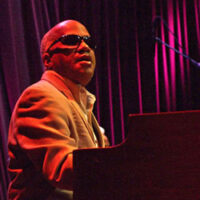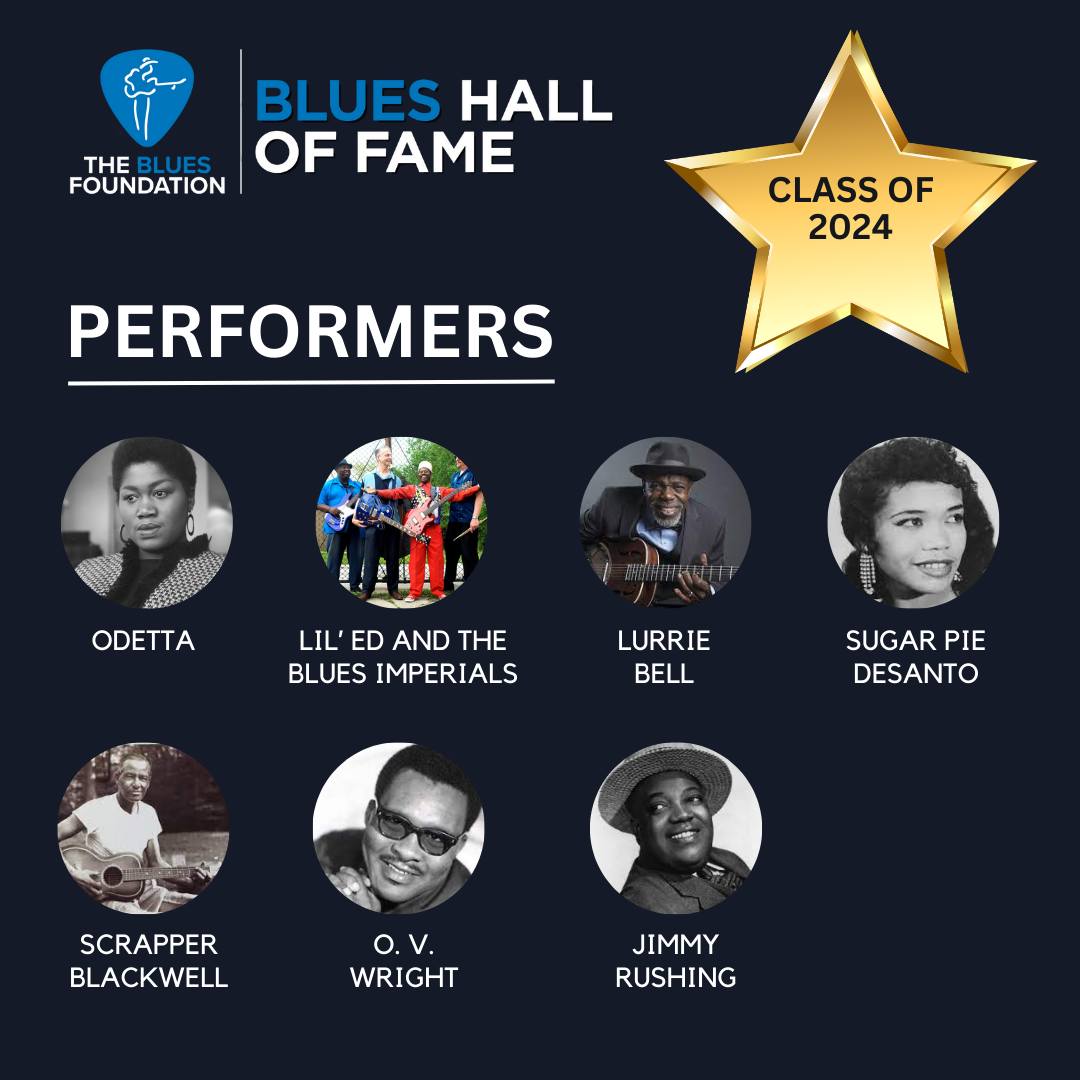Chicago blues living legends and Delmark recording artists, Lurrie Bell (and Lil’ Ed!) are both new members in the Blues Foundation BLUES HALL OF FAME as performers. Lurrie is one of our all time favorite blues artists and dear friends, and he has released several Delmark CDs as a leader and sideman to his father, Carey, too!
Lil’ Ed is an Alligator recording artist but a dear friend of the Delmark family, as Delmark recording artist J.B. Hutto is Lil’ Ed’s uncle and biggest influence and mentor. Lil’ Ed recorded a tribute song to JB Hutto with JB’s pupil and Ed’s former bandmate, Dave Weld for the recent Delmark 65th anniversary Tribute album from 2018, as well as being featured all over Dave Weld’s Delmark debut, Burnin’ Love from 2010.
AND one of the biggest living legend of the blues, the elder statesman of Chicago blues harmonica, the forever young, Billy Boy Arnold is inducted for his famed Vee Jay recording from 1955, “I Ain’t Got You” – Classics of Blues Recordings – singles!
Stay tuned for previously unreleased vintage recordings from Billy Boy Arnold to be released on Delmark in 2024, and hopefully new recordings, too!!
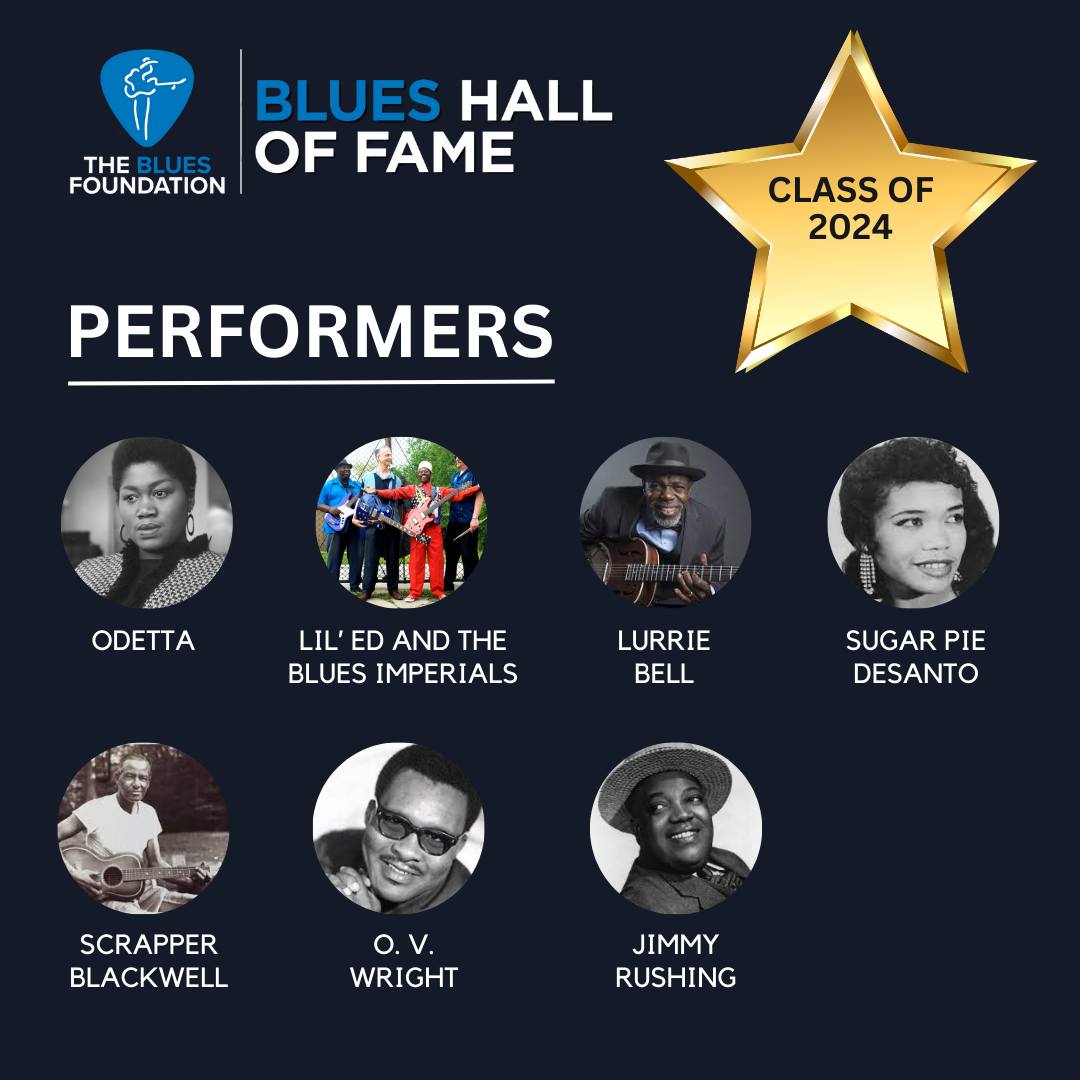
| THE BLUES FOUNDATION IS EXCITED TO ANNOUNCE ITS 2024 BLUES HALL OF FAME INDUCTEES! |
 |
| Jimmy Rushing, Lil’ Ed and The Blues Imperials, Lurrie Bell, O. V. Wright, Odetta, Scrapper Blackwell, Sugar Pie DeSanto, and William R. “Bill” Ferris will be celebrated as new Blues Hall of Fame Inductees on May 9, 2024. Landmark recordings by: Junior Parker, Bobby Bland, Billy Boy Arnold, Jazz Gillum, Clarence “Gatemouth” Brown and Lil Green Individuals – Business, Production, Media, Academic: William R. “Bill” Ferris To receive Hall of Fame recognition at The Blues Foundation’s ceremony in Memphis. |
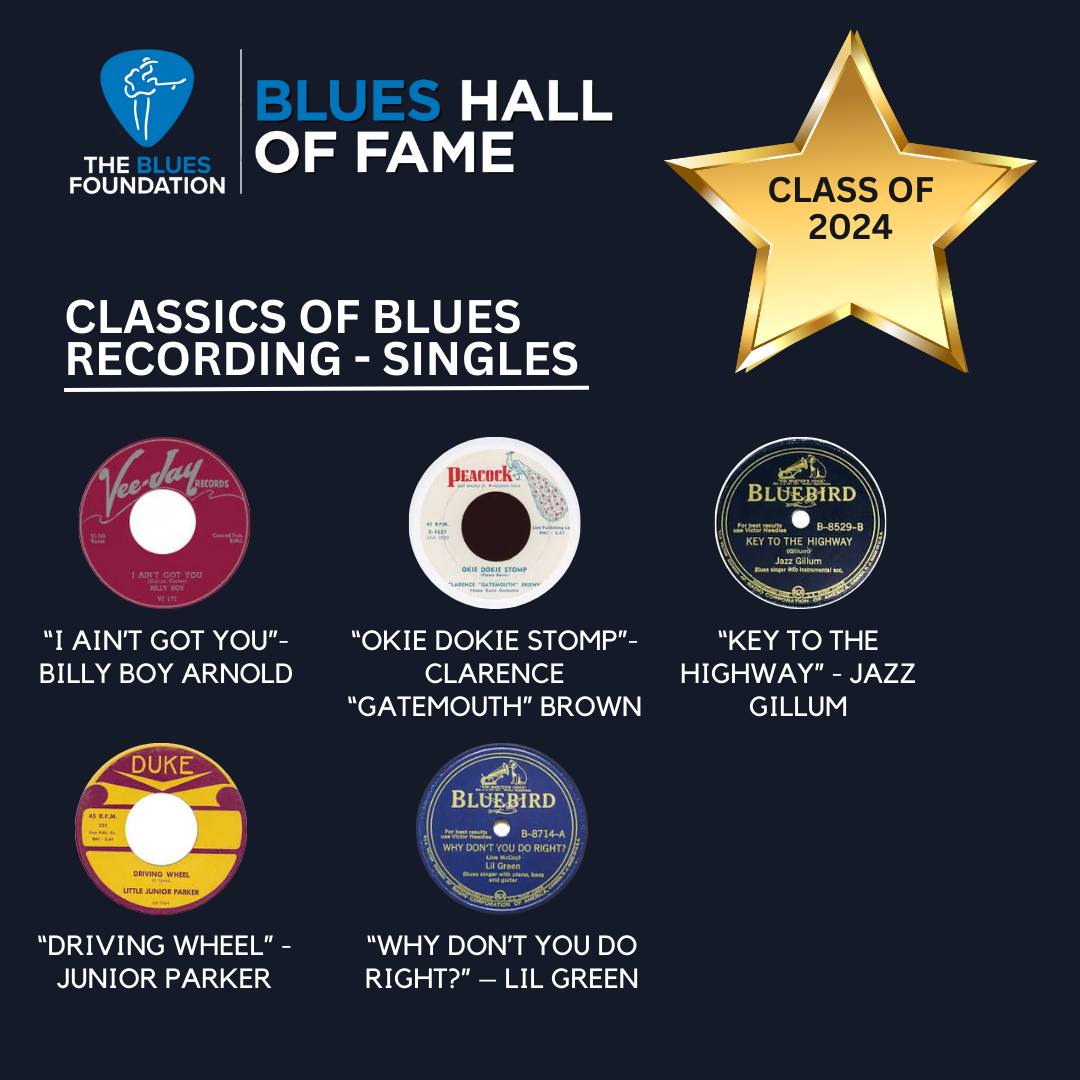
  |
  |
| This year’s inductees into the Blues Hall of Fame’s five categories — Performers, Non-Performing Individuals, Classics of Blues Literature, Classics of Blues Recording (Single), and Classics of Blues Recording (Album) — demonstrate how the blues intersect with a wide variety of American music styles: soul, blues, R&B, and rock’ n’ roll. The new Blues Hall of Fame performers aren’t just exceptional musicians, but they also are educators, innovators, entrepreneurs, and activists determined to leave their mark on the world. Jimmy Rushing, affectionately known as “Mr. Five By Five” due to his stout stature, was a groundbreaking figure in the world of blues and jazz. Born on June 15 or August 26, 1899 (though he often cited a 1901 birth-date), in Oklahoma City, James Andrew Rushing pioneered the big band blues belting style, leaving an indelible mark on the genre and influencing subsequent blues shouters like Big Joe Turner, Wynonie Harris, and Roy Brown. Inspired by an uncle, Rushing began his blues journey in California in 1923, where he played piano with Jelly Roll Morton before returning to Oklahoma. He sang in various territory bands, including Walter Page’s Blue Devils, and joined Bennie Moten’s Kansas City Orchestra, marking the beginning of his association with legendary jazz figures. Rushing recorded or performed with luminaries such as Count Basie, Buck Clayton, Benny Goodman, Dizzy Gillespie, Earl “Fatha” Hines, and others. He was the vocalist on the Johnny Otis orchestra’s inaugural record in 1945 and reunited with Otis at the 1970 Monterey Jazz Festival. Rushing’s pivotal recordings with the popular Basie band, starting in 1935, catapulted him to national prominence. Hits like “Good Morning Blues,” “Going to Chicago,” and “Sent for You Yesterday and Here You Come Today” showcased his commanding vocal presence and marked him as a leading figure in the big band era. He played a significant role in bringing blues to a broader audience. After moving to New York City in the 1950s, Rushing continued his prolific recording and touring career. He worked with various labels, including Vanguard, Columbia, ABC BluesWay, and RCA, releasing albums like “Livin’ the Blues” and “The You and Me That Used to Be.” Despite battling leukemia in his final years, Rushing continued to receive accolades, posthumously winning a Down Beat magazine poll as Best Male Singer shortly after his death in June 1972. Rushing’s contributions to blues and jazz were immeasurable, bridging the gap between the genres and influencing a wide array of singers. Although recognition may have faded among more recent generations of blues enthusiasts, his impact on blues, jazz, pop, and rhythm & blues remains undeniable. Rushing’s career reached far and wide, spreading the appeal of the blues to a broader audience than ever imagined. Lil’ Ed and The Blues Imperials stand as a testament to the enduring power of tight-knit, infectiously cheerful blues bands. Led by singer and slide guitar maestro Lil’ Ed Williams, the group, which includes his half-brother and bassist James “Pookie” Young, along with Mike Garrett on guitar and Kelly Littleton on drums, has been making music together for over thirty-five years. Their energetic brand of boogie blues finds its roots in the legacy of another Chicago slide master, Ed’s uncle and mentor J.B. Hutto, a Blues Hall of Fame inductee in 1985. The Blues Imperials, inspired by a TV commercial for Imperial margarine, burst onto the scene in 1986 when Alligator Records owner Bruce Iglauer invited them to record two songs for a compilation. In true Chicago blues lore fashion, the session turned into a lively party, resulting in 30 songs in three hours and securing Lil’ Ed and the Blues Imperials a contract for their debut album, “Roughhousin’.” This milestone allowed Lil’ Ed to bid farewell to his job at a local car wash. Born on April 4, 1955, in Chicago, Ed Williams passionately embraced a style reminiscent of his uncle J.B., both vocally and instrumentally. Mirroring Hutto’s iconic look, Ed even dons a fez during performances. His acrobatic showmanship and humorous stage presence brought a good-time element to the blues, captivating audiences and earning him a dedicated following of fez-wearing “Ed Heads.” Despite a brief hiatus in the 1990s for solo projects, Lil’ Ed and The Blues Imperials regrouped, rejoining Alligator Records, and solidifying their status as label mainstays. With nine albums to their credit, the core quartet, occasionally featuring saxophonist Eddie McKinley, has consistently delivered upbeat live shows and recordings, embodying the trademark “Genuine Houserocking Music” associated with Alligator Records. The band’s energetic performances continue to perpetuate the spirit of their influences, including Hound Dog Taylor and the HouseRockers, ensuring that the legacy of Lil’ Ed and The Blues Imperials remains synonymous with high-octane blues that genuinely rocks the house. Lurrie Bell, a prominent figure in the blues world, follows in the footsteps of his late father, harmonica maestro Carey Bell, who was inducted into the Blues Hall of Fame in 2023. Born on December 13, 1958, in Chicago, Lurrie developed into an extraordinary blues guitarist during the 1970s, displaying remarkable talent even as a teenager. Despite facing personal trauma and tragedy throughout his life, Lurrie’s enduring passion for music has carried him into his senior years with the same youthful exuberance. Growing up in a musical environment, Lurrie drew inspiration from his father’s musical circle, notably guitarist Eddie Taylor. His early experiences included playing in a band with pianist Lovie Lee, the musician credited with bringing Carey Bell to Chicago from Mississippi. Lurrie’s childhood also involved living in Mississippi and Alabama, where he played gospel music in church alongside his Bell brothers, collectively known as “The Ding Dongs.” Lurrie’s journey into professional music began in 1977 when he recorded on a session with his father, Carey Bell, and played bass on an Eddie C. Campbell album. That same year, he joined forces with Billy Branch and other emerging blues musicians in the “New Generation of Chicago Blues” package in Berlin. The collaboration with Branch evolved into the Sons of the Blues (S.O.B.) band, solidifying Lurrie’s status as one of the rising stars in the blues scene. His guitar skills and innate understanding of the blues genre gained recognition as he recorded with various artists, including Koko Taylor, Eddy Clearwater, Sunnyland Slim, and Louisiana Red. Despite personal challenges, including periods of depression, isolation, and life on the streets, Lurrie’s musical talents continued to captivate audiences. His life took a challenging turn with the passing of his partner, photographer Susan Greenberg, and the heartbreaking loss of their twin babies. Carey Bell’s death in 2007 added to the hardships, yet Lurrie’s unique musical abilities served as a lifeline, bringing him back to a sense of sanity. Over the years, Lurrie faced personal challenges, but his musical journey persisted. Amberly Stokes, a devoted supporter and former Rosa’s Lounge employee, became Lurrie Bell’s advocate. Under her care and management, he found stability, a supportive home life, and renewed worldwide acclaim for his remarkable talent. Lurrie’s enduring contribution to the blues genre, resilience, and captivating performances solidified his place in the Blues Hall of Fame. Odetta, hailed as “The Mother Goddess of Folk Blues” by The New York Times, left an indelible mark on the world of folk music for five decades. Her influential career not only showcased her extraordinary musical talents but also paved the way for others, breaking barriers as a woman and an African American in the folk milieu. Born Odetta Holmes on December 31, 1930, in Birmingham, Alabama, she spent most of her childhood in Los Angeles. Classically trained in college, Odetta possessed a versatile repertoire that spanned blues, spirituals, jazz, songs from various folk and popular traditions, and original topical songs reflecting her commitment as a civil rights activist. Although she occasionally worked the blues club and festival circuit, her blues credentials were undeniable, evident in albums like “Odetta Sings Blues and Ballad,” “Odetta and the Blues,” “Blues Everywhere I Go,” and “Lookin for a Home,” a compilation featuring songs associated with Lead Belly. Her remarkable career included performances in Martin Scorsese’s 2003 “Salute to the Blues” concert, Divas film in Clarksdale, Mississippi, and appearances at the Apollo Theater in Harlem and Blues Foundation events. Odetta, who was once married to blues singer Louisiana Red, enchanted audiences with her magnetic stage presence and powerful voice, captivating listeners whether singing solo or collaborating with symphony orchestras, jazz bands, ballet troupes, opera companies, or all-star musical aggregations. Odetta’s commitment to social justice was evident as she sang at historic events like the March on Washington and the Selma, Alabama March, as well as at human rights and anti-war rallies. She used her voice not only to entertain but also to advocate for change, performing at benefits, tribute concerts, and schools. Throughout her illustrious career, Odetta collaborated with luminaries such as Harry Belafonte, Dr. Martin Luther King Jr., Nina Simone, Maya Angelou, and Pete Seeger. Her influence extended to artists like Bob Dylan, Janis Joplin, Joan Baez, Rhiannon Giddens, Eric Bibb, and countless others. Honored by U.S. presidents, the Library of Congress, and numerous organizations worldwide, Odetta continued to perform even in the face of declining health. She passed away in New York on December 2, 2008, leaving behind a legacy that transcends music, resonating in the realms of humanitarianism and education. O.V. Wright, recognized for his powerful fusion of blues, soul, and gospel, brought unparalleled emotion-drenched intensity to his music. Born Overton Vertis Wright on October 9, 1939, in Lenow, Tennessee, near Memphis, he began his musical journey singing church music and later professionally with the Sunset Travelers. Despite his deep roots in gospel, O.V. Wright transitioned to secular music, making a significant impact with his unique blend of blues. Wright’s early success came with the Goldwax label in Memphis, where his debut R&B record, “That’s How Strong My Love Is,” showcased his impressive vocal prowess. However, legal battles ensued over contractual obligations, eventually leading him to the Back Beat label owned by Don Robey of Peacock Records. Back Beat became the platform for many of Wright’s notable recordings, including hits like “You’re Gonna Make Me Cry” and “Eight Men, Four Women.” Willie Mitchell and the Hi Rhythm Section played a crucial role in shaping the sound of Wright’s music, leading to several successful collaborations in the ’70s, such as “Ace of Spade” and “A Nickel and a Nail.” Mitchell, known for his work with Al Green, praised Wright as his most consistent artist in the studio. Onstage, O.V. Wright delivered dynamic performances often likened to that of a preacher, seamlessly blending verses from the blues and the Bible. While he found success on the chitlin circuit, health issues, a criminal record, and a narcotics conviction hindered his career. In his final years, Wright continued performing, leaving a lasting mark on stages across the country. He passed away on November 16, 1980, while performing at Joe’s Supper Club in Grand Bay, Alabama. His legacy lives on through a core global following that includes hip-hop artists who have sampled his music. In 2008, a group of fans honored him with a headstone, acknowledging his profound impact on the worlds of blues, soul, and gospel. Johnny Rawls and Otis Clay recorded a tribute CD, “Remembering O.V.,” ensuring that O.V. Wright’s contributions to music endure. Scrapper Blackwell, born Francis Hillman Blackwell, left an indelible mark on the blues scene as a virtuoso guitarist and collaborator with Blues Hall of Famer Leroy Carr. Though widely recognized for his role in the iconic Carr-Blackwell duo during their recording zenith from 1928 to 1935, Blackwell’s musical prowess extended far beyond accompaniment. Born on February 21, 1903 (though birth details remain uncertain, with some evidence pointing to Indianapolis in 1904), Blackwell, of Cherokee and African-American descent, began his artistic journey crafting makeshift guitars as a child. His entry into the blues arena was catalyzed when he joined forces with Leroy Carr in 1928. The duo’s sessions yielded timeless classics, with hits like “How Long—How Long Blues” making them a household name. Despite their success, Carr’s untimely death in 1935 led Blackwell to retreat from music, only to be rediscovered by local fans in the 1950s. His raw talent and unique guitar style were showcased in solo recordings and collaborations with emerging musicians. Yazoo Records acknowledged his unparalleled guitar skills, emphasizing his ability to blend heavy bass sections and intricate treble-string runs. In the 1950s, Indianapolis jazz scholar Duncan Schiedt reintroduced Blackwell to a new generation of fans who admired his old recordings. Despite facing periods of unemployment, Blackwell continued to play in local taverns and mentor aspiring musicians. His unexpected encounters with old admirers led to concert performances and recordings, contributing to the folk-blues revival of the late 1950s and early 1960s. Nicknamed “Scrapper” for his youthful inclination for tussles, Blackwell’s life was marked by both musical triumphs and personal challenges. His journey came to an unfortunate end on October 7, 1962, when he was discovered in an Indianapolis alley, having succumbed to two .22 caliber bullets. Despite the tragic circumstances surrounding his death, Scrapper Blackwell’s legacy endures through his timeless contributions to the blues genre. Sugar Pie DeSanto packed astonishing power and plenty of personality into a tiny frame. Her spunk and vigor impressed bandleader and producer Johnny Otis enough to sign her to her first recording session in 1955 after witnessing her performance at a San Francisco talent show. It was Otis who named her Sugar Pie in preference to using her given name, Peylia Balinton. A ballet student as a child, she was born in Brooklyn on October 16, 1935, to a Filipino father and African American mother, but grew up in the Bay Area and continued to live there except for a spell in Chicago when she was with Chess Records in the 1960s. After her 1955 debut for Federal Records, Sugar Pie recorded a few more singles, often with her husband, guitarist Alvin Parham, aka Pee Wee Kingsley, acquiring the DeSanto moniker from producer/DJ/club owner Don Barksdale. Her biggest hit, “I Want to Know,” produced by Bob Geddins on the Veltone label, rose to No. 4 on Billboard’s R&B chart in 1960 and led to a contract with Chess. The DeSanto magic also energized the already dynamic James Brown revue for two years. During her tenure with Chess, she had some hits on the subsidiary Checker label, including “Slip-In Mules,” an answer to Tommy Tucker’s “Hi-Heel Sneakers, and “In the Basement” on the Cadet imprint, a duet with longtime friend Etta James, who was often at the Balinton home as a youngster. Sugar Pie’s records also clicked with the Northern Soul crowd in England, enough so that she left the all-star cast of the 1964 American Folk Blues Festival’s European tour to make U.K. appearances of her own. Under various names including Peylia Parham and P. Parham DeSanto she began writing songs for other artists at Chess, including Billy Stewart, Fontella Bass, and Little Milton. Sugar Pie took her act back to Oakland and remained active and still saucy even into her octogenarian years, a local favorite as well as a world traveler. When times were slow, she worked as a paralegal. The Rhythm & Blues Foundation provided support after she lost her husband Jessie Davis in a fire at their apartment. The Foundation also presented her with a Pioneer Award, one of several honors she has earned from various sponsors, including the Arhoolie Foundation and Blues Blast magazine. She found a recording home with her manager James C. Moore’s Jasman label, which began releasing DeSanto’s output in 1972, sprinkling her catalog with titles befitting her persona such as Sugar Is Salty, Refined Sugar, and Sugar’s Suite. William R. “Bill” Ferris, a prominent figure in the world of blues, is celebrated for his multifaceted contributions as an author, folklorist, professor, lecturer, and administrator. Born on February 5, 1942, in Vicksburg, Mississippi, Ferris has played a pivotal role in documenting and preserving the rich cultural heritage of the American South, particularly in the realms of blues, gospel, and storytelling. Ferris initiated his work in the 1960s by recording, photographing, and filming blues musicians, gospel singers, and storytellers in Mississippi. His family’s farm in Vicksburg served as the backdrop for his early documentation efforts. Ferris focused not only on the musical aspects of the artists but delved into the broader context of their lives, folk traditions, and stories, providing a unique and comprehensive perspective on the cultural significance of the music within their communities. Having earned several college degrees, including a Ph.D. in Folklore from the University of Pennsylvania, Ferris embarked on a career as an educator. He taught at institutions such as Jackson State University and Yale University in the 1970s. Ferris co-founded the Center for Southern Folklore in Memphis and later directed the Center for the Study of Southern Culture at the University of Mississippi. His involvement in preserving blues history included hosting the “Highway 61” radio show and releasing recordings on the Southern Culture label. Ferris’s contributions extended to the acquisition of Living Blues magazine and significant materials, including B.B. King’s record collection, which formed the core of the Blues Archive at the University of Mississippi. He took on a role at the University of North Carolina in 2002 as a professor and Associate Director of the Center for the Study of the American South. His literary works, notably Blues From the Delta (1970) and Give My Poor Heart Ease: Voices of the Mississippi Blues (2009), showcase his commitment to exploring the social and cultural dimensions of the blues. Ferris’s comprehensive efforts received widespread acclaim, with Blues From the Delta earning recognition as a Classic of Blues Literature by the Blues Hall of Fame in 1998. One of Ferris’s remarkable achievements is the Dust-to-Digital box set Voices of Mississippi: Artists and Musicians Documented by William Ferris, which won a GRAMMY in 2019. This extensive project includes multi-media presentations featuring live performances from renowned artists like Bobby Rush, Sharde Thomas, and Luther and Cody Dickinson, further solidifying Ferris’s impact on the preservation and celebration of Southern musical heritage. Entering the Blues Hall of Fame as a Classic of Blues Literature is Blues Legacies and Black Feminism: Gertrude “Ma” Rainey, Bessie Smith, and Billie Holiday, by Angela Davis (Pantheon, 1998) chroniclesAngela Davis, controversial activist, author, and professor widely known for her revolutionary politics, argues against some conventional views of women and their songs in the blues. |
  |
  |
| The Blues Hall of Fame Induction Ceremony, held this year in conjunction with the Blues Music Awards will occur on Wednesday, May 8, 2024, at the Cannon Center For The Performing Arts (255 N Main St, Memphis, TN). A cocktail reception honoring the BHOF Inductees and Blues Music Awards nominees will begin at 5:30 p.m., with the formal inductions commencing at 6:30 p.m. at the Cannon Center. Coinciding with the Induction Ceremony, The Blues Foundation’s Blues Hall of Fame Museum will showcase several special items representing the 2024 class of inductees. These artifacts will be on display for public viewing beginning the first week of May and will remain on view for visitor enjoyment for the next 12 months. The Blues Hall of Fame Museum, built through the ardent support and generosity of blues fans, embodies all four elements of The Blues Foundation’s mission: preserving blues heritage, celebrating blues recording and performance, expanding awareness of the blues genre, and ensuring the future of the music. The museum’s current exhibit in the upstairs gallery features the work of artist Jerome Fulton. Viewers will find an infusion of Deep South culture, blues music, and ancient world culture (Egyptian and Nubian) – all blended with broader strains of American history. His work has been featured in the Museum of Science and Industry, Chicago, the Walter Payton Foundation, the DuSable Museum of African American History in Chicago, the Cultural Center of Helena, Arkansas, and the Clarksdale Cultural Center in Clarksdale, Mississippi. In addition, interactive displays allow guests to hear the music, watch the videos, and read the stories about each of the Blues Hall of Fame’s over 400 inductees. The museum is open Tuesday through Saturday from 10 am to 5 pm. Admission is $10 for adults and $8 for students with I.D.; free for children 12 and younger and Blues Foundation members. Membership is available for as little as $25 per person; to join, visit www.blues.org. The Blues Foundation’s Blues Hall of Fame Museum is located at 421 South Main Street in Memphis, TN. Blues Hall of Fame Inductee biographies and descriptions were researched and written by Jim O’Neal (bluesoterica.com) For press inquiries, please contact Doug Deutsch at, Doug Deutsch Publicity Services. The Blues Foundation’s partners and sponsors include ArtsMemphis, Tennessee Arts Commission, Memphis Tourism, Big Blues Bender, and Legendary Rhythm & Blues Cruise. |
| Join us in Memphis as we celebrate the 2024 Blues Hall of Fame Inductees at the Induction Ceremony on Wednesday, May 8 at the Cannon Center For The Performing Arts and the Blues Music Awards on Thursday, May 9 at the Renasant Convention Center. |
| Our host hotel for the Blues Music Awards is the Sheraton Memphis Downtown Hotel, conveniently located across the street from the Renasant Convention Center where the BMA Ceremony takes place. |
| The Blues Foundation’s 2024 Blues Hall of Fame Inductees Performers: Jimmy Rushing Lil’ Ed and The Blues Imperials Lurrie Bell O. V. Wright Odetta Scrapper Blackwell Sugar Pie DeSanto Individuals – Business, Production, Media, Academic: Classic of Blues Literature: William R. “Bill” Ferris Blues Legacies and Black Feminism: Gertrude “Ma” Rainey, Bessie Smith, and Billie Holiday, by Angela Davis (Pantheon, 1998) Classic of Blues Recording – Album: Here’s the Man!!! – Bobby Bland (Duke, 1962) Classics of Blues Recording – Single or Album Track “Driving Wheel” – Junior Parker (Duke, 1961) “I Ain’t Got You”- Billy Boy Arnold (Vee-Jay, 1955) “Key to the Highway” – Jazz Gillum (Bluebird, 1940) “Okie Dokie Stomp”- Clarence “Gatemouth” Brown (Peacock, 1954) “Why Don’t You Do Right?” – Lil Green (Bluebird, 1941) |
| Want more blues news? Connect with The Blues Foundation via social media: |
| Copyright © 2023 The Blues Foundation. All rights reserved. The Blues Foundation • 421 South Main Street • Memphis, TN 38103-4464 (901) 527-2583 • www.blues.org Want to change how you receive these emails? You can update your preferences or unsubscribe from this list |



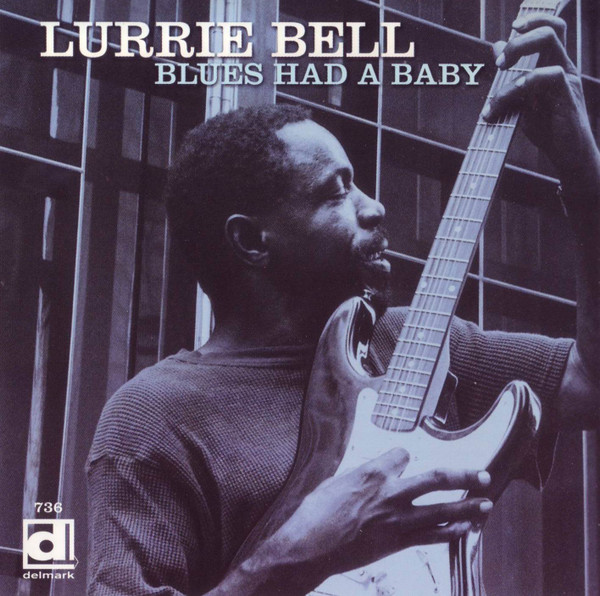
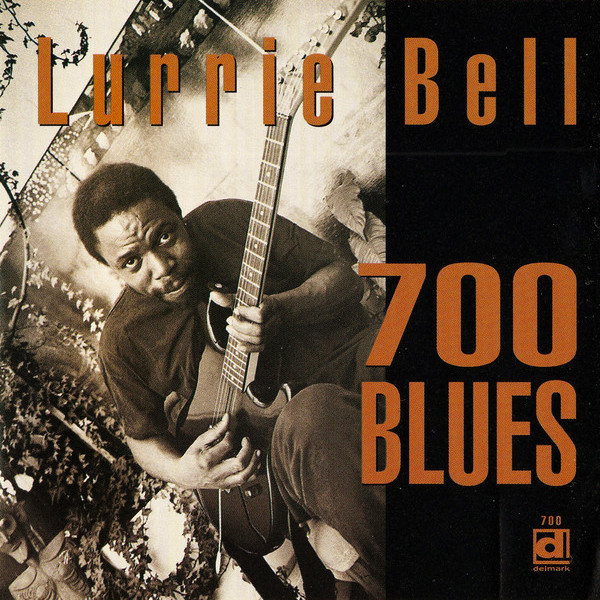
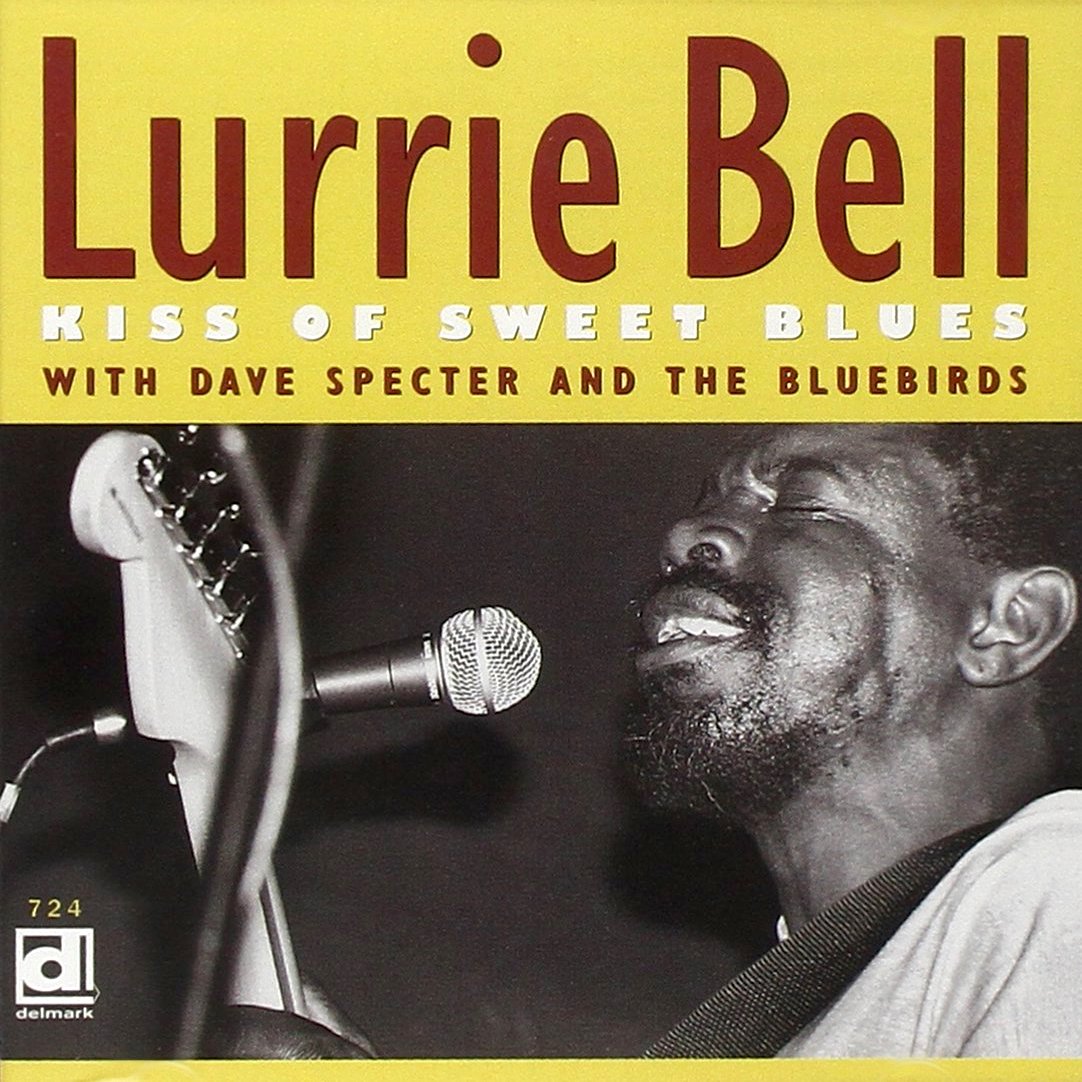




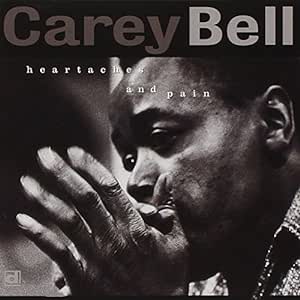
featuring teenaged Lurrie on guitar!
https://delmark.com/tag/lurrie-bell/
Welcome BILLY BOY ARNOLD to the Delmark family!!

THE GREATEST LIVING CHICAGO BLUES Harmonica legend will be collaborating with Delmark Records on fascinating previously unreleased historic recordings!
BREAKING NEWS!
Delmark Records is very proud to announce that blues master Billy Boy Arnold has joined the Delmark family. Delmark Records will release an album by this stalwart of Chicago Blues which features a selection of his previously unreleased historical recordings made from 1949 to the 1960’s.
“Coal And Ice Man” (1949), comes from an informal recording of a John Lee Williamson “Sonny Boy #1” song by Billy Boy on vocals and harmonica and Willie McGhee on guitar. The 1949 recording comes from an acetate made by Billy Boy himself in a recording booth.
The band recordings were made in the early-mid 1960s at the Chicago home of saxophonist Lorenzo Smith (who didn’t play on them). The musicians are: Billy Boy Arnold, Mighty Joe Young (guitar), Jerome Arnold (Billy Boy’s brother) (bass), and Bill Warren (drums). All vocal songs are covers but there are two original instrumentals. The duo recordings were also made in the ’60s, at Billy Boy’s Chicago apartment; the guitarist is Ulysses Williams. All of the recordings were originally transferred from acetate to magnetic tape by Dick Shurman. Those tapes were then digitized, cleaned, and mastered by Julia A. Miller at Delmark’s Riverside Studio.
The release date for this album, produced by Dick Shurman, will be announced very soon.
William “Billy Boy” Arnold was born on September 16th, 1935, in Chicago, Illinois. He is a blues harmonica and guitar player, singer and songwriter. He has worked with blues legends such as Bo Diddley, Johnny Shines, Otis Rush, Earl Hooker, Jody Williams, Mighty Joe Young and many others. He is a disciple of John Lee (Sonny Boy) Williamson and Big Bill Broonzy; he knew both, took lessons from Sonny Boy and has recorded tribute albums to both. Billy Boy Arnold is in the Blues Hall Of Fame.
Delmark Records is thrilled to welcome Billy Boy Arnold to its catalogue and family. The recent and highly praised book “The Blues Dream of Billy Boy Arnold”, written with Kim Field, was published in 2021 by University of Chicago Press.
“Billy Boy is a treasure who deserves to be celebrated- Billy Boy was generous and trusting enough to share this material with me back in 1969. I’m delighted that it’s being given some care and becoming part of his already formidable legacy. Thanks to Billy and Delmark Records!” – producer/historian/journalist Dick Shurman
THANK YOU DICK SHURMAN!!!!!!!!!!!!
“HUGE THANKS to Billy Boy’s good and respected friend Dick Shurman for cherishing and protecting this music Billy Boy trustingly handed him back in 1969. Shurman’s heartfelt lifelong dedication to both the preservation and continuation of blues music will truly be a continuous gift to the world long after we’re all gone. We’re so fortunate to have him and the many contributions he continues to make honoring the music and the musicians who create it. Looking forward to hearing this historical release he thoughtfully preserved for 54 years now finding its wings with Delmark”- Leslie Hagins and we couldn’t agree more!





